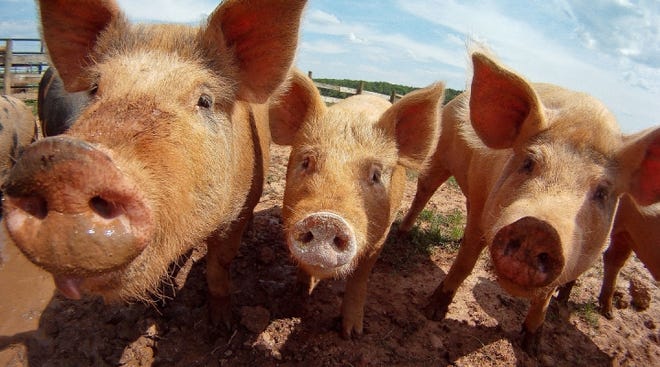ASF detected in Western hemisphere for the first time in 40 years

The U.S. Department of Agriculture’s (USDA) Foreign Animal Disease Diagnostic Laboratory confirmed the discovery of African swine fever (ASF) in samples collected from pigs in the Dominican Republic through an existing cooperative surveillance program.
Currently The United States remains free of ASF – an animal disease affecting only pigs with no human health implications – and imports no pork, animal feed or other pork production-related products from the Dominican Republic.
NPPC Science and Technology Legal Counsel Andrew Bailey told RFD-TV that the discovery was a result of a routine surveillance program that USDA has been helping the Dominican Republic on for the past two years
“It’s still not in the United States and between USDA and the U.S. Customs and Border Protection, we have a lot of people and programs to make sure it stays out of the country,” Bailey said.
USDA said its Animal and Plant Health Inspection Service (APHIS) has numerous interlocking safeguards in place to prevent ASF from entering the United States, Feedstuffs reported.
Additionally, the Department of Homeland Security’s Customs and Border Protection (CBP) is increasing inspections of flights from the Dominican Republic to ensure travelers do not bring prohibited products to the United States. CBP will also be ensuring that garbage from these airplanes are properly disposed of to prevent the transmission of ASF, USDA said.
“USDA is committed to assisting the Dominican Republic in dealing with ASF, is offering continued testing support, and will consult with them on additional steps or actions to support response and mitigation measures,” the agency said. “We will also offer similar help to Haiti, which borders the Dominican Republic and is at high risk for ASF detections.”
The USDA continues to work diligently with partners including CBP and the U.S. swine industry to prevent ASF from entering the United States. ASF is not a threat to human health, cannot be transmitted from pigs to humans and it is not a food safety issue.
“The United States has significantly bolstered biosecurity to protect the U.S. swine herd since ASF broke in China nearly three years ago and began spreading to other parts of the world,” said Liz Wagstrom, chief veterinarian with the National Pork Producers Council told Feedstuffs. “We are thankful for steps taken by the USDA and U.S. Customs and Border Protection (CBP), including strengthened border inspection and the implementation of an active surveillance program designed to quickly detect and eradicate ASF. These measures are particularly important now that ASF has been detected in the Western hemisphere for the first time in approximately 40 years.”
Dr. Wagstrom added, “We thank the USDA and CBP for the additional measures they are taking to prevent the spread of ASF to the United States.”
The Wisconsin Pork Association says Veterinarian Darlene Konkle has also be in touch with the National Pork Producers Council and will be issuing a statement in the near future.
What can swine producers can do to protect herds?
Practice biosecurity:
- Ask all visitors about recent travel outside the country. Do not let anyone who has been in an ASF-affected country onto your farm for at least five days after they enter the United States.
- Separate new pigs before bringing them into your herd and monitor them for signs of disease.
- If pigs become sick, separate them and contact your veterinarian.
- Don’t visit other swine farms. If you must visit another farm, take a shower and wash your clothing before and after your visit.
- Vehicles and tools can carry disease. Don’t share equipment with other farms and clean tools after use.
- Limit visitors to your farm and reduce on-farm traffic as much as possible.
Know the signs of ASF:
The virus can cause a wide range of clinical signs in infected pigs, and can spread very rapidly. Some signs of an ASF infected pig include:
- Fever
- Discoloring of the skin
- Loss of appetite
- Vomiting
- Diarrhea
- Difficulty breathing
- Weakness
- Sudden death
What is the government doing to protect the U.S. swine herd?
The USDA has the following safeguards in place to reduce the risk of introduction into the United States:
- Import restrictions on pork and pork products.
- Increased vigilance from Customs and Border Protection staff at ports of entry, paying particular attention to passengers and products arriving from ASF-affected countries like the Dominican Republic.
- Increased messaging to industry partners to raise awareness of the direct biosecurity concerns with foreign visitors to domestic swine operations.